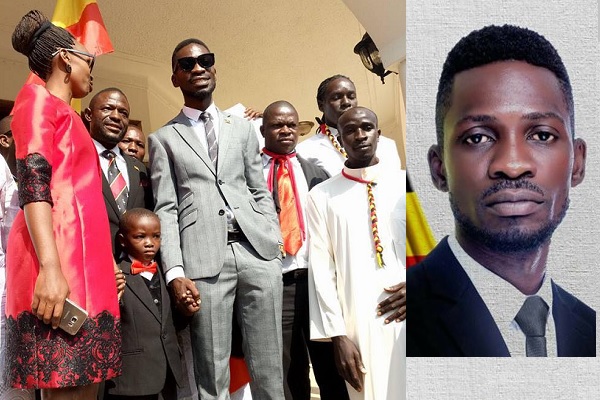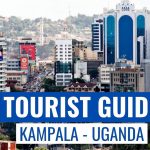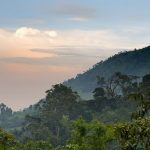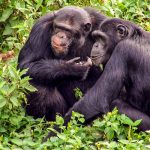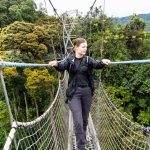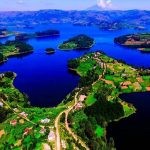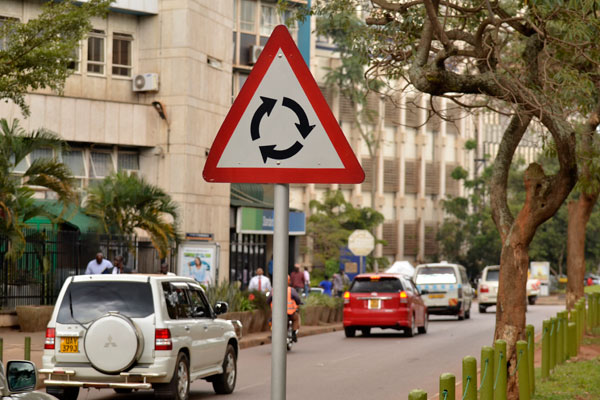On April 26 this year, one of Uganda’s most popular musicians openly declared his intentions to venture into politics, an announcement that sent a mix of waves across the country. Bobi Wine who had for long used his music to advocate for social justice, democracy and transparency in the political leadership was now taking these issues to the Parliament as a legislator.
One can not scrutinize the popularity of Bobi Wine’s month long campaign (and him becoming a Member of Parliament) without appreciating the role played by social media. Everyday, social media was awash with photos and videos of crowds at his rallies, enthusiastic supporters doing the most craziest things, his door to door campaigns and his adored wife Barbie who stood by him all the while.
But hidden beneath the surface, were anonymous faces that played an equally if not more significant part in turning the election (and status) in Bobi’s favor.
One of these faces was (and remains) Andrew Natumanya, commonly named ‘Tabz’ who kept the lens on the events that characterized the month long campaign trail and Bobi Wine’s political figure today as his official photographer
The Story of Andrew Natumanya
A naughty Andrew while in Primary Two (P.2) one day defied school regulations and brought hard corn to class.
The teacher caught him crunching on the corn and asked what he had been eating, Andrew said he was eating tabs (tablets). The teacher searched his bag only for the corn to spill on the floor attracting an outburst of laughter from his classmates. Andrew had got a new name for himself – Tabz.
When I sat down with 24-year-old Tabz, a student of law at Makerere University recently to get a sense of his relationship with Bobi and his reflections of the campaign, I asked him how he ended up into photography.
“I did Law to please my parents and to award their efforts. They did all they could do to educate the four of us (him and his siblings). So I struggled hard to reward their efforts,” he tells me.
During his time at Makerere University, Tabz had focused more through the camera lens than he had focused on acquainting himself with court cases and law related literature. Suffice to say, photography is also a gene he inherited from his father who too had passion for it.
Growing up, Tabz would borrow cameras from friends and take photos and in the process, the interest grew. Then, he began trying more angles and people loved his work.
An election campaign at the university was the propelling point in his pursuit to grow his skill in photography. When his friend Andrew Mujinya chose to contest for Guild Presidency at Makerere University, Tabz was responsible for handling social media for the campaign, so, later he realized they needed photography.
All this while, he had been using borrowed cameras until he finally realized he needed to buy his own camera. And when he put the request to his sister and mother three years ago, they supported him to purchase one at Ush 2.2 million.
“Before I knew it, I was lost in photography more than what I was studying,” Tabz says.
And Kampala being the buzz of activity that it is, Tabz found a window of opportunity in the regular protests, concerts, parties and other events to take photos and share them on social media. To this day, he makes time and sets off on foot around the city to take random shots. You never know where you will land a captivating shot.
Away from the one off photography gigs, Tabz, did media work with Uganda Police, a job that later put him in the middle of some political controversy. On August 10 2016, a day that the Inspector General of Police (IGP) was expected to appear before the Makindye court over allegations of police brutality, Tabz was present to take photos as his work demanded.
When chaos broke out between protesters supporting the IGP and those against, one of the local televisions singled out Tabz and reported that he was among those instigating violence.
“They alleged that I was there to cause commotion, which wasn’t the case. They quickly judged on plain sight. I was only doing media which had nothing to do with Police operations. I don’t like that they’ve never come out to apologize,” in a disgruntled tone, he tells me. That day has stuck with him to date.
He says this incident cast him in bad light especially in the eyes of his friends. But at the same time, it inspired him to work hard to challenge the image the media had portrayed of him.
This aside, his challenges have been; access restrictions by some government organs especially security agencies and limitations in photography equipment due to insufficient funds.
Working with Bobi Wine
“He’s been a friend of mine for a long time. I liked his music like anyone else, then I started paying keen attention to his lyrics and it appeared as though he was singing about my life.” he answers when I ask how he got to work with Bobi.
Tabz never could have predicted that at one point, he would be a close associate to his icon (Bobi Wine) let alone become his official photographer. Every person has an encounter with luck that turns their life around, never to be the same again. For Tabz, this was the day he took his very first photo at Bobi Wine’s political campaign.
As the campaign gathered momentum, he secured a leave from his Police work to concentrate on his friend’s political bid in Kyadondo East.
“When you have a friend and they have a wedding, you would have something to contribute. When Bobi Wine was campaigning, I was working for Police. I asked and they granted me leave.” Andrew explains.
He recalls calling Bobi Wine three days into the campaign. “I asked him ‘Bobi, where are you?’ He told me he was already in the campaign and asked me to join in.”
“He didn’t know I would come with my camera because he hadn’t really picked interest in my photography. I spent the entire day taking pictures. But my relationship with him helped me. He quickly became my model and it was easy when I asked him to pose for the camera,” Tabz narrates.
It did not take me time to get a sense of the strong rapport that the two (Bobi Wine and his photographer) have built. Our interview is interrupted by a phone call and Tabz is speaking to Bobi Wine about a request by one of the television stations seeking the MP to appear on a political show later in the week. From the tone of their interaction, you can tell that Tabz is much more to Bobi Wine than just a photographer. Sometimes he offers advice and Bobi Wine heeds to it.
In the campaign, after a long day’s work, Tabz would take the photos to Bobi Wine, but it took a while for him (Bobi), he says, to believe it was him taking the photos. As opposed to what many may think – that Bobi Wine’s social media accounts are ran by handlers, Tabz tells me “He [Bobi] personally chooses which photos to post and posts them.”
He chose to resign his job at Police because he realized “that there was a lot of untold stories to Uganda.”
What stands out in his recollection of the time he spent with Bobi Wine pursuing political support is how hectic the daily campaign program got, not only for Bobi but everybody on the campaign team. Their daily routine began as early as 5am before setting out on a door to door campaign where Bobi Wine solicited support from individual households and later climaxed with a rally at 4pm.
“Everyday started with small pockets of people but numbers gradually grew into crowds of people and a lengthy motorcade. You never knew where people came from,” Tabz recounts
“There’s a day we met a certain man who had a truck. He had doubts that Bobi Wine was part of the procession. He couldn’t believe us until we showed Bobi to him. He surrendered the truck to us for free for the campaign,” he says.
Whereas the gazetted time to end campaigns was 6pm, Tabz’s work was only halfway by this time. It is about the same time that he sat down and began sorting through the photos he had captured the entire day before submitting them to Bobi Wine. He prides in the fact that his work always ended up being posted on Bobi wine’s social platforms even when there were numerous other photographers trailing the campaign.
Amid the busy schedule, limited rest time and negotiating edgy angles to get the perfect shots, Tabz remembers the hardworking nature of Bobi Wine’s wife, Barbra Kyagulanyi (Barbie). “The inner circle of the campaign team comprised of at least 20 people. But Barbie woke up early and prepared breakfast for us all by herself,” he says.
I asked him where he strikes the balance between doing his work while ensuring he doesn’t invade Bobi Wine and his family’s private space. At first he laughs it off, before saying; “What are private moments? Bobi Wine no longer has a private life because he is a public figure. There’s not a time when his home is not occupied by over 20 people.”
“You’ve seen photos of him and his daughter which has been trending of late.”
But he quickly adds; “I am an adult and I know what is fit for public consumption and what should be restricted.”
Different people understand Bobi Wine differently. But for someone who has been quite close to Bobi since he joined politics, Tabz describes him as one who is “always ready to stand for the truth even when he stands alone”.
The famous photo when Bobi Wine was blocked at Entebbe
September 22 was not the best day for Bobi Wine but it is certainly a day that Tabz might live to recall for all the good reasons. The day his photo became an internet sensation, attracting lots of credit on social platforms. Bobi Wine had just landed at Entebbe International Airport from the U.S and on his way to Kampala, police blocked him and demanded that he goes to the police station to record a statement.
It is in that chaos that Tabz took a photo of Bobi Wine with head protruding the roof of his SUV, both arms raised – holding the Uganda flag in his right hand and the constitution booklet in the left hand. Two police pickups stood in front of his car while a few people surrounded Bobi Wine’s car.
The photo, tweeted by Bobi Wine on the very day with a caption “Wake up Uganda” has so far been retweeted close to 1,000 times and attracted close to 2,000 likes. It is among Bobi Wines most engaging and shared photos on Twitter.
“We were coming from the airport, the Police blocked us. When this happened, in a short time, people started converging and the place became full,” Tabz narrates to me.
He adds; “We were there for about an hour. But when I looked at the way the police trucks were packed, I wondered how I could shoot the entire scene. I went behind the trucks and I took the shot.”
“But it was on time because Police had put barricades trying to stop him but on his part, he was arguing ‘I am Ugandan and I am defending my constitution’ (raising a flag in one hand and the constitution in another). But he did it for a few seconds and I captured the moment.”
Responding to the praises that the Entebbe photo has attracted on social media, he tells me it makes him feel “energized” and “challenged” at the same time.
Tabz says he has tried to learn from photographers that are better than him. He is inspired by well timed shots. “Someone takes a picture of a lion jumping on a kob. The lion won’t do it four times for you to get the best shot. So photography is like life. Once a moment is gone, you can never get it,” says Tabz.
I ask Tabz whether it’s true that photographers must think ahead of events or whether some shots just come out of mere luck.
“There’s no shot that comes out of luck. There has to be effort to have your output. If you are going to the field and you want to be comfortable and smart, you won’t get the best work out of you.”
His magic trick is keeping his eye on the lens.
The risk of working with Bobi Wine
Police officers block the road to Nagalama police station. One of the photos taken by Tabz before his equipment was confiscated by security agents
When I rang Tabz to schedule an interview, he didn’t hesitate to it. Part of the reason was that given his work in the context of Uganda’s politics, he wasn’t sure where tomorrow would land him. In other words the stakes are high and the risks involve being arrested.
But he is not scared by any of this.
“I am not intimidated. Freedom and positive change never come on a silver platter,” he replies when I asked whether he is not afraid.
“I am 24 years old and am very sure that H.E Yoweri Museveni won’t be alive n the next 20 years whether he likes it or not. Will I still be jailed? All I know, history will remember me for having fought using what I know best. I know they will confiscate my camera but we shall overcome.”
People like Tabz who are in circles of vocal and provocative opposition politicians are not the most secure people especially in Uganda. In fact, recently, after the infamous brawl in Parliament, his equipment was confiscated by security operatives for no clear reason.
He trailed Bobi Wine the day he got arrested from Parliament to Nagalama several miles outside Kampala. Tabz had been taking photos and making Twitter updates all through the way. But he later noticed a certain Prado with private number plates with UPDF officers was following them.
“The Prado by passed us and parked. Then another vehicle came following and officers rounded us up. My bag was taken and my friend was arrested”. His bag contained two phones, pairs of lenses, cables, a power bank among other things.
“When I went to pick them, they chased me away and threatened to detain me,” he tells me.
“I gave up. I can’t start fighting the entire army of police who are armed. I can’t even challenge them in court. So, i have no option, I will work hard, save more and hope that God will provide.”
He suspects that the entire team working with Bobi Wine is being spied on by security agents who will stop at nothing to break the spirit. “Even when I buy other lenses, I know they will come and get them but that is the oppression we live in.”
Photography in era of social media
With the fast rise of the internet age, many photographers are increasingly establishing a footprint on social media as a way of showcasing their work and pushing their brands. For some, the results have been positive.
Tabz says social media is by far the biggest tool of branding and advertisement. “When you write something in the newspapers or television, but it is difficult to retrieve it as opposed to if someone had it on their phone. Internet does not forget.”
“I value social media a lot,” he says.
The impact of Tabz’s photos has been that their reach on social media has attracted wide attention to the growing political influence that Bobi Wine has had in Uganda in his few months as an MP. So, while Bobi might take all the credit for his people centric political ideals, but the magnitude in which social media has scored extra points for him can’t be underestimated. And Tabz is at the centre of this.
Lately, his posts especially on Twitter are consistently tilting towards photojournalism. If anything were to happen to Bobi Wine, Tabz, is likely to be the first person to break the news. And he has built credible trust given his work with Bobi. Whether Bobi has been arrested, holding a music show, at home interacting with guests or in Namboole stadium cheering the national soccer team, Tabz will feed live updates or post the happenings later through his social media.
Soldiers saluting Bobi Wine and claims that he met with President Museveni
There were recent claims making rounds on social media that Bobi Wine met with President Yoweri Museveni, after photos emerged showing soldiers saluting him during the night. I jokingly asked Tabz whether he has photos of the alleged meeting in his archives.
“This is either a plan by the government to spread propaganda to tarnish Bobi Wine’s name or the opposition trying to stay on top of the news,” Tabz comments.
“Those pictures were taken in Budaka. We came from a concert in Kyotera and drove through Kampala. Why would people allow to be confused? We have cameras and photographic evidence of where we were and what time.”
Tabz reveals to me that there are various other photos of soldiers, policemen, and prisons personnel in different places saluting Bobi Wine but which he feels there’s no cause for Bobi Wine to explain himself.
Photography as a career?
“I told you I did Law to reward the efforts of my parents. They will be rewarded by a transcript (academic document). Once they finally get the transcript, to well with the Law. I must go for where my passion is. How many lawyers do we have and how many photographers do we have?” he says.
But beyond still photography, Tabz also films videos including documentaries and TV commercials.
Tabz says his transition to photojournalism is driven by the realization that “from photography, is a lot of information I could give to the public”
Some of his mentors including the NBS TV CEO Kin Karisa have also wooed him into weaving a career in journalism and he is beginning to.
He intends to “put out fire with fire” by building himself as an investigative journalist.
Some of his career destinations include working with local media like NBS TV as well as international media organizations like Aljazeera, AFP, and the BBC.
But first, he says he needs to build up his skill set.
To his fellow Millenials, Tabz says they should learn not to despise jobs

